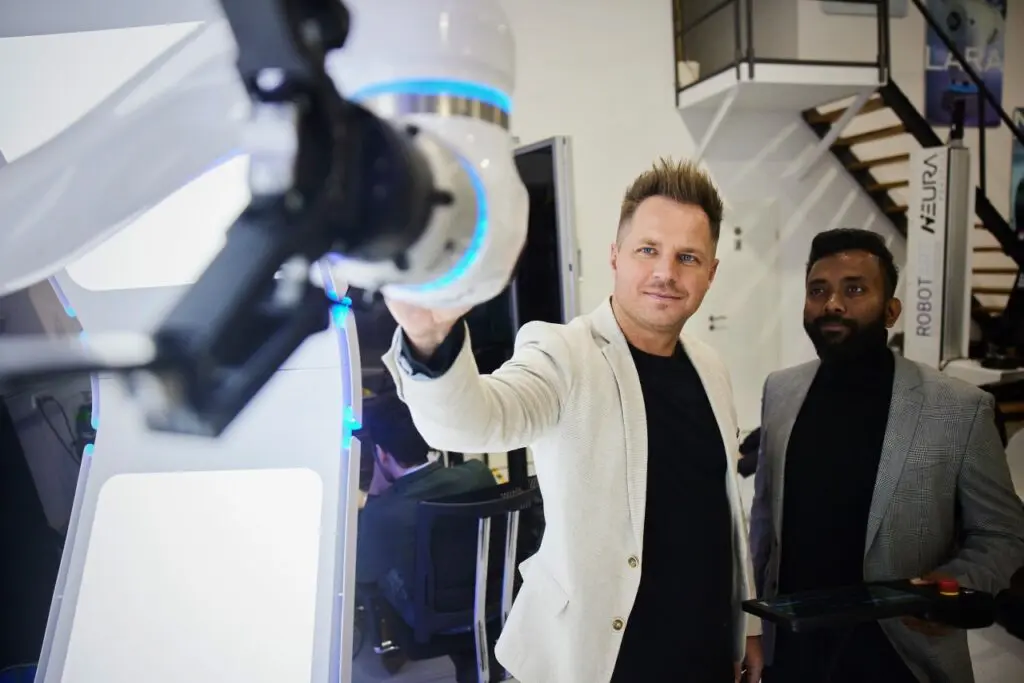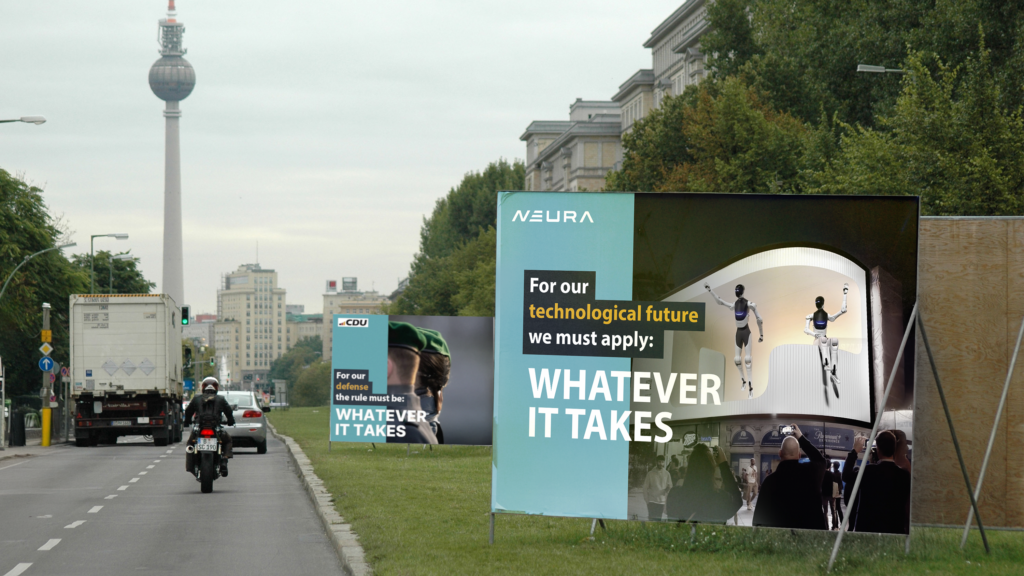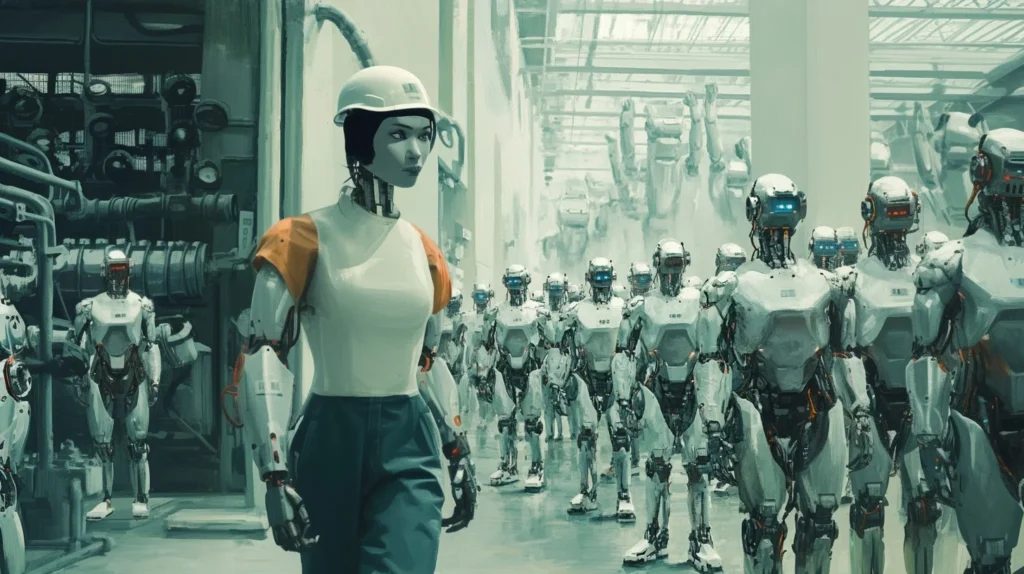2024 – The Year AI Gets a Body?
I often talk and write about the future. (Well, that’s how it is with visionaries, right?) And yes, I know many of my friends, colleagues – and not least my family – often wish for a David Reger who’s more present in the here and now. This article is a compromise. It’s my personal outlook on 2024. A future that, in essence, is already now.
I have to start in the past. The year 2023, the year of Artificial Intelligence – at least from a technological perspective. I argue: 2023 was the year when the overwhelming majority first consciously realized that artificial intelligence is not just pie in the sky. The rapid development of ChatGPT or the incredibly realistic images created by AIs like MidJourney – that opened many eyes to how far we’ve already come.
2024 will once again be a year marked by visions, expectations, and probably concerns, as we experienced in 2023 with Artificial Intelligence. But another technology will come into focus. A technology that challenges our imagination and inspires us to think beyond current boundaries. Of course, I’m talking about cognitive robotics. The combination of robotics and artificial intelligence will be at the center of technological and ethical debates in the coming year. And a central question will be: Are we as a community ready to make the best of these new possibilities?
The idea of a personal robot assistant is thus becoming a tangible reality.
Robotics in itself is not really a new field. However, the way it is currently evolving is impressive. For a long time, robots were confined to industrial applications because they were not capable of reacting quickly to unforeseeable events. In other words: Robots were not able to cope with the unpredictability and unforeseeability of our world. Safe operation could only be guaranteed within tidy and predictable industrial facilities. Until now, every movement of a robot had to be programmed in advance. All work steps and obstacles had to be anticipated by programmers.
Cognitive robotics will cope with the “chaos” in our world. Sensory organs and reflexively fast data processing already allow NEURA Robotics robots to perceive and react to their environment. Combined with artificial intelligence, they can learn from this, adapt, and improve. The idea of a personal robot assistant that supports us at home in everyday life is therefore within reach – and in 2024 we will experience the first major breakthroughs and see impressive prototypes in the media. Only the legislation will initially slow down the spread of multifunctional robots, as safety approval, the equivalent of a TÜV (a technical inspection and certification agency in Germany, known primarily for its rigorous vehicle safety and emissions testing) for a robot, is today tied to a specific purpose, a specific task. However, if a robot can both grind, saw, weld, assemble, and also sort eggs and fill the Thermomix, then some definitions and regulations will need to be rethought.
The technology is ready for the future – are we?
With this revolution in robotics, of course, comes the same quite philosophical question we know from the AI discussion around ChatGPT. Are we as humanity ready to handle this technology responsibly and use it for the good of all? Engineering is not an end in itself, but there to make our existence easier and to free up time for more humanity.
Cognitive robotics, previously only the stuff of science fiction, has the potential to take on time-consuming, unpleasant, or dangerous tasks. This theoretically opens up spaces for creativity and personal development. But will we use them wisely? Have you ever asked yourself what you would do with an extra two or three hours each day? Revive a forgotten hobby? Learn an instrument? Simply be with your loved ones? Or maybe even start a small business? Today, with ChatGPT, practically anyone can write a decent text and even entire books. An affordable robotics platform opens up the possibility to build a small assembly line in the garage and produce niche products. And now imagine that the tasks of the robot do not have to be complicatedly programmed – but that you can simply download the appropriate “app” onto the robot for different tasks.
What I’m talking about here is by no means the distant future. Right now, at the beginning of 2024, we are at the start of this new era in which robots are no longer limited to specific tasks in industry. These machines can be as versatile and adaptable as our smartphones. But unlike these devices, which often distract us from reality, cognitive robots have the crucial advantage of being able to really help us in the real world.
In conclusion, it’s not about whether technology is ready for such a future – it is! And this realization will shape the year 2024. The question that arises from this is much more important to me: Are we all ready to use these tools in a way that makes our world a better place for all people?
P.S.
As an entrepreneur, my wish for 2024 is for Germany to realize that we have all the necessary conditions to take a global lead in cognitive robotics. And I’m not just talking about as inventors, engineers, and designers. Especially in manufacturing, we could position ourselves as a robotics hub, independent of international supply chains. But that’s a topic for another article – one for another time.







